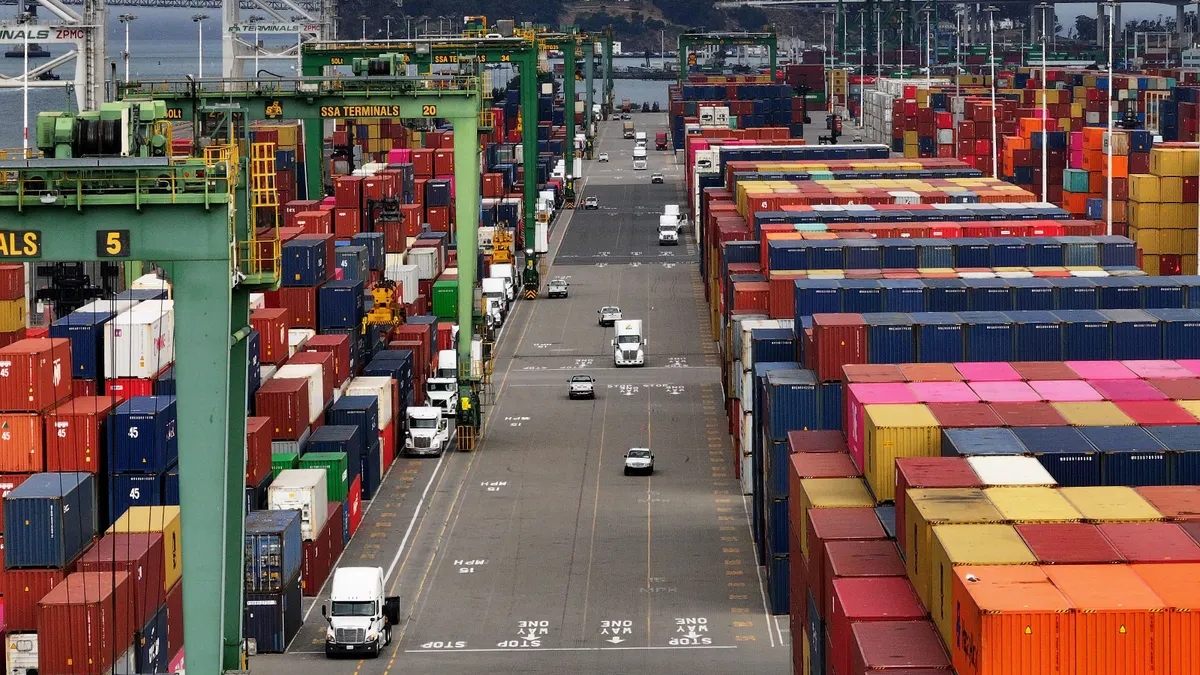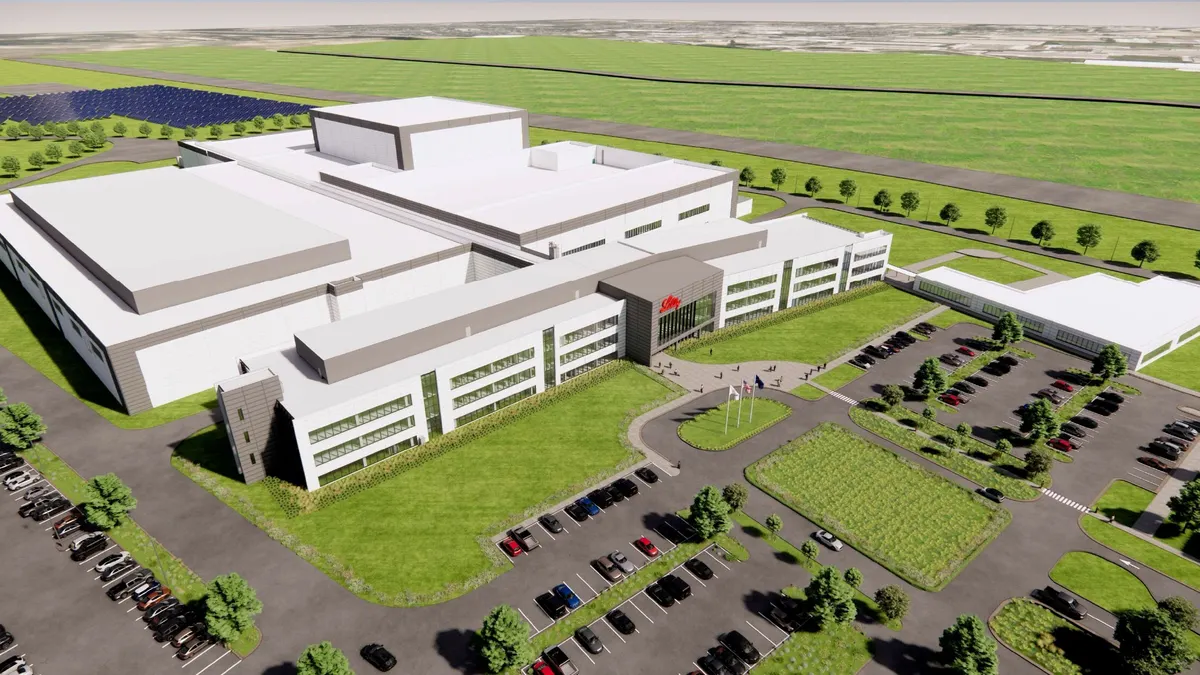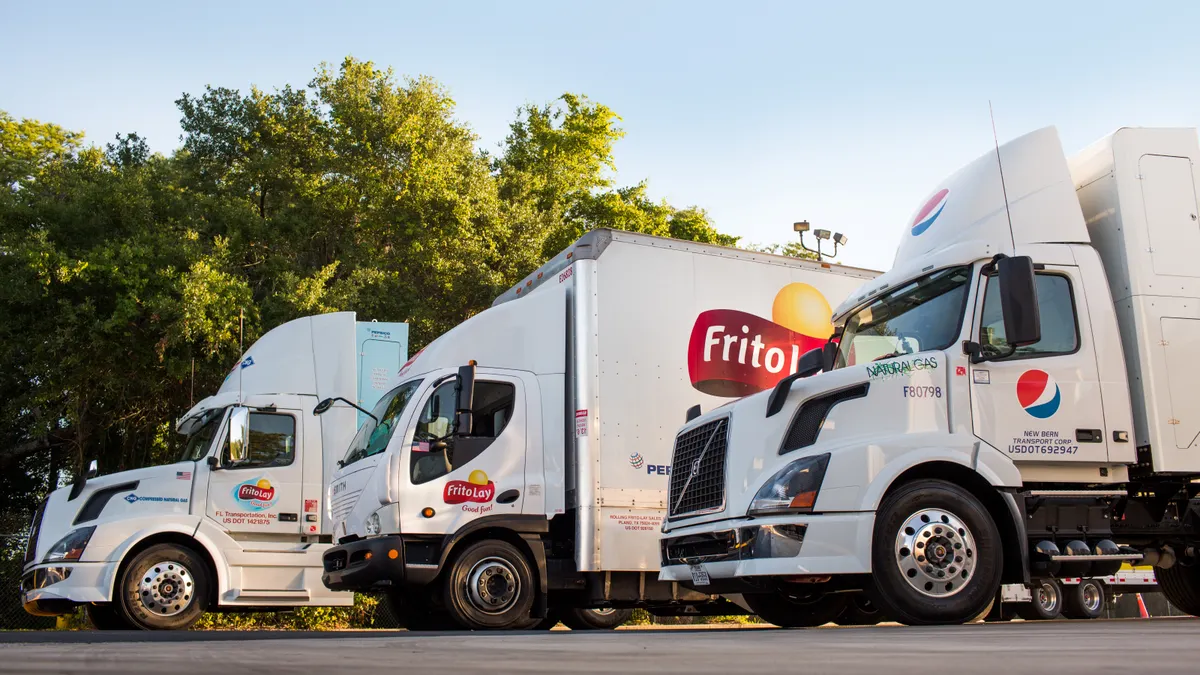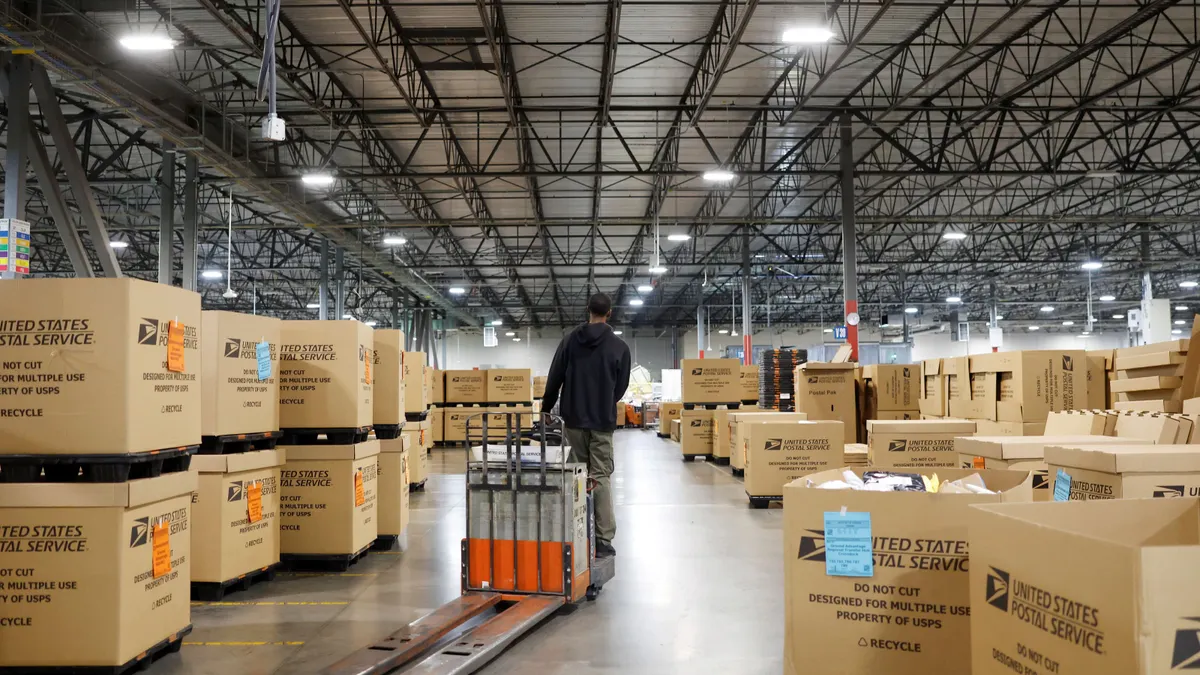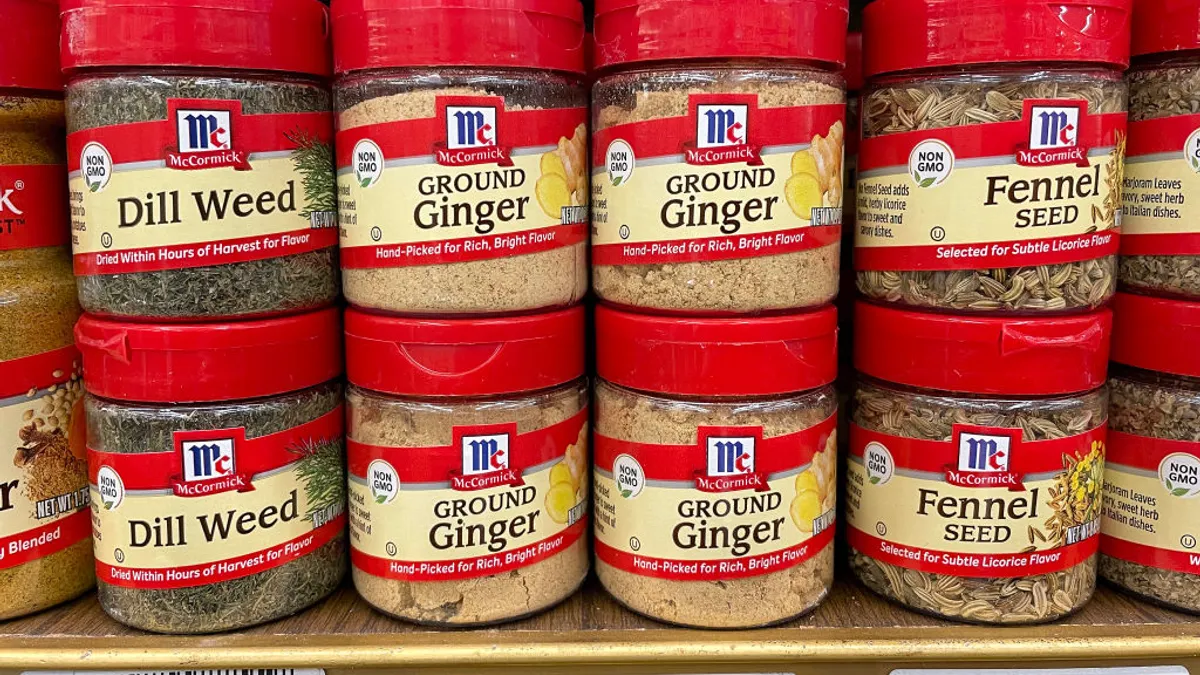Retailers and manufacturers are coming to terms with the reality of heightened tariffs from the Trump administration even as they warn of price increases and seek exemptions.
President Donald Trump signed an executive order last week to implement a slew of country-specific tariffs on numerous trading partners, starting Aug. 7. The latest directive has been met with pushback as well as resignation that navigating higher duties is now a permanent part of doing business.
“The reality is that tariff volatility has become the new normal. And companies are increasingly recognizing this shift, adjusting not only their short-term tactics, like frontloading or limiting imports to essentials, but also rethinking long-term strategies,” said Mike Short, president of global forwarding at C.H. Robinson Worldwide, in emailed remarks.
Institute for Supply Management CEO Thomas Derry struck a similar tone during an Aug. 1 press call, noting that after months of uncertainty, recent moves from the White House provide some level of clarity.
“Which is only a good thing for manufacturing,” Derry said. “We’re going to have to live with tariffs now, but to a large degree, we understand where they’re going to be.”
A clearer picture of the tariff landscape will still create short- and long-term challenges for many industries, according to trade groups such as the National Retail Federation and the National Restaurant Association.
“Tariffs are taxes paid by U.S. importers and are eventually passed along to U.S. consumers,” said NRF EVP of Government Relations David French in an Aug. 1 statement. “These higher tariffs will hurt Americans, including consumers, retailers and their employees, and manufacturers, because the direct result of tariffs will be higher prices, decreased hiring, fewer capital expenditures and slower innovation.”
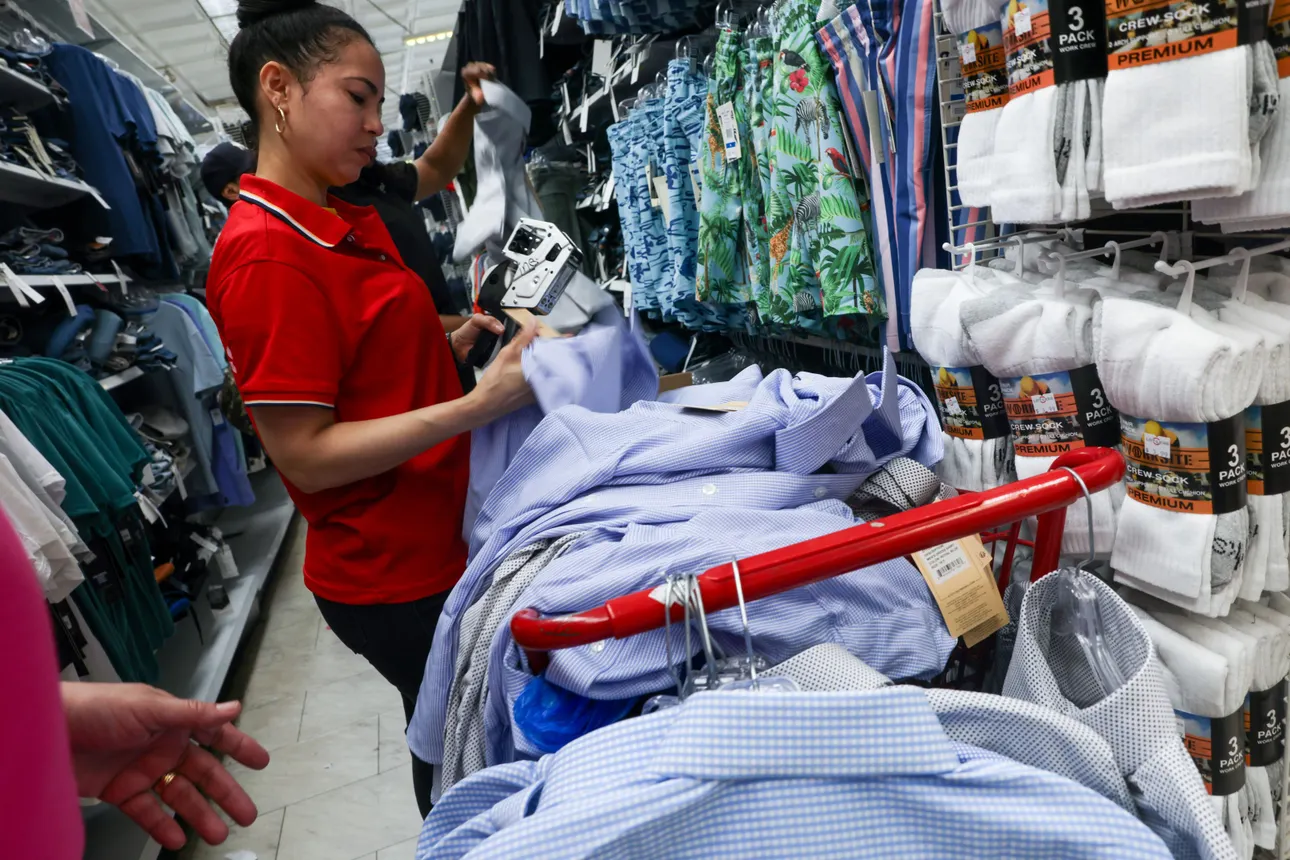
Price hikes may be inbound
Larger retailers have generally “held the line” when it comes to pricing despite new tariff announcements, according to French.
For example, Home Depot in May said it did not plan to increase prices in response to levies, while Costco CFO Gary Millerchip said the company would avoid raising consumer costs for certain staples like produce. In contrast, some manufacturers, such as Stanley Black & Decker, have already implemented price hikes.
The new tariffs set to go into effect Thursday could push more retailers to make changes to their pricing structures, with Walmart CEO Doug McMillon saying in May that higher tariffs would result in higher prices. The ISM’s Derry indicated the manufacturing sector was also increasingly evaluating the need to raise prices.
“We haven’t seen a lot of that to date, but it’s now something that’s being actively mentioned,” Derry said.
Restaurants may be forced to raise prices as well as new tariffs take hold, including those on trading partners key to the food supply chain, such as Canada, Brazil and the European Union.
“Although we are still evaluating the full impact of these announcements, it is evident that these tariffs will increase the cost to access many important menu products,” said National Restaurant Association President and CEO Michelle Korsmo in an Aug. 1 statement. “With restaurants operating on very tight margins, many operators may have no choice but to increase menu prices, something they are reluctant to do, because we know Americans may have to make the choice to dine out less frequently if prices go up.”

Restaurants seek exemptions
In a July 29 letter to U.S. Trade Representative Jamieson Greer, the NRA said a 30% tariff on food and beverage products from Mexico and Canada would cost the domestic restaurant industry $15.16 billion.
Currently, imports from Canada and Mexico that do not comply with the United States-Mexico-Canada Agreement are subject to tariffs of 35% and 25%, respectively. USMCA-compliant goods are not subject to tariffs. However, no such exemption currently exists for products from trading partners like Brazil and the EU.
“We strongly advocate for exempting food and beverage items from tariff negotiations, and ensuring USMCA-compliant goods remain exempt during ongoing talks with Mexico and Canada,” Korsmo said in her statement.
Prepping for more change
Beyond seeking exemptions and potentially raising prices, companies are redesigning their supply chains to be adaptable against current and future tariff measures.
“The conversation has evolved beyond a simple ‘China +1’ or ‘+2’ diversification model,” C.H. Robinson’s Short said. “What we’re seeing now is a more intentional, tiered sourcing hierarchy that prioritizes geopolitical stability, business continuity, and cost efficiency.”
But not all companies are equipped to make the type of supply chain shifts needed to compete in such a volatile trade environment, with many smaller businesses feeling intense pressure from U.S. tariffs.
“We have heard directly from small retailers who are concerned about their ability to stay in business in the face of these unsustainable tariff rates,” the NRF’s French said.
The pressure from levies on businesses of all sizes may intensify in the months ahead, particularly as the U.S. continues trade negotiations while conducting Section 232 investigations into pharmaceuticals and semiconductors.
"My hope is that now that tax and trade policy are largely settled, we'll begin to see an uptick, but there is still much work to do,” said Alliance for American Manufacturing President Scott Paul in a statement.


